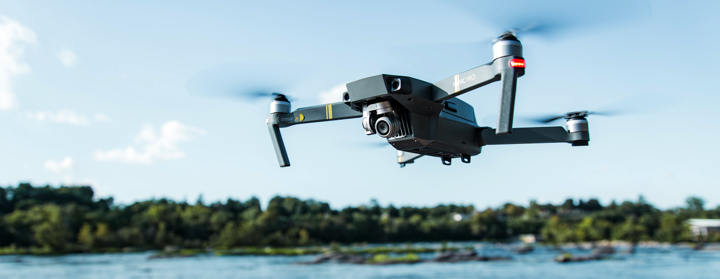Prestigious Postdoctoral Fellowship in the Area of AI-Human Partnership in Emergency Response

Postdoctoral Fellowship AI & Human Partnership in Emergency Response: Apply by November 1!
RCODI and its collaborators at Purdue are looking for outstanding candidates for the Gilbreth Postdoctoral Fellowships at Purdue in the area of AI and Human Parternership Modeling in Emergency Response.The fellowship is awarded in memory of Dr. Lillian Moller Gilbreth, Professor at Purdue from 1935-1948 and a world-renowned pioneer in the application of psychology to industrial engineering.
Description: When emergencies like wildfires or hurricanes happen, fast and targeted responses with dispatching and relocation of rescue teams, helicopters, or UVAs are needed. New emergency response technologies make use of advancements in AI (including ML and autonomous systems) to increase the success of targeted dispatching. Meanwhile, with the ability to trace emergency-related data at scale, digital twins offer new ways to prepare for future emergency responses in the “virtual” but “very real” representation of distinct emergency response systems. However, given the complex socio-technical nature and social dynamics in emergency response decision-making, it is important to consider the “human-in-the-loop” and optimize the collaboration between AI and humans. This post-doctoral interdisciplinary research project aims to develop new theories, models, and technologies that advance science on modeling human-in-the-loop AI and translate it into emergency response practice. The project team will advance existing emergency response systems with the help of AI/ML and digital twin technologies, and perform large-scale AI-human partnership experiments with the goal to optimize the decisions of humans in partnership with AI-decision support considering human biases, cognitive limitations, and social dynamics. The research will be performed in collaboration with industry partners and citizens. RCODI is particularly interested in recruiting candidates with a background in computational social science and an interest in UVAs and unmanned aviation for humanitarian aid and disaster management (e.g. firefighting).
Qualifications: The ideal candidate holds a PhD in areas such as Computer Science, Computational Social Science, Complexity Science, Industrial Engineering, Systems Engineering, or other Engineering disciplines, Management Sciences, Information Systems or Information Sciences. We expect the candidate to be trained in statistical methods, data science, ML/AI or even computer vision, with the ability to mine and model large volumes of behavioral trace data or even physiological data (e.g. eye tracking, video, audio, heart rate etc.). Experience in agent-based modeling and network analytics (in particular network dynamics) is appreciated but not required. We would expect that irrespective of the candidate’s training he/she has a solid understanding of behavioral theories of social dynamics, team coordination, and/or human decision making under risk. Experience in performing large-scale human experiments (e.g. via online platforms) interfacing with digital technologies or experience in smart interface design and quantitative evaluation is a plus.
Advisors of Postdoctoral Researchers:
- RCODI Director Dr. Sabine Brunswicker, Professor of Digital Innovation, Director of the Research Center for Open Digital Innovation, Polytechnic Institute and Brian Lamb School of Communication.
- Nan Kong, Professor of Biomedical Engineering, Weldon of Biomedical Engineering, Purdue University.
Potential external collaborator: Dengfeng Sun, Purdue AAE, Nosh Contractor, Northwestern University Jane S. & William J. White Professor of Behavioral Sciences in the McCormick School of Engineering & Applied Science, the School of Communication and the Kellogg School of Management,Lyudmila Mihaylova, Professor of Signal Processing and Control, University of Sheffield, UK.
Start date: Between February and June 2023; negotiable and depending on graduation date.
Application Deadline: Applications are accepted starting July 11, 2022. Application closes on November 1, 2023. Apply by creating a profile here. You find more details on the prestigous fellowship program here
Eligibility:
- U.S. citizens and permanent residents, who have either completed their PhD on or after Dec. 31, 2020, or are in the final year of their PhD program in engineering or related sciences, can apply. Non-U.S. citizens or non-permanent residents can apply only if they are currently in the U.S. AND have either completed their PhD on or after Dec. 31, 2020, or are in the final year of their PhD program in engineering or related sciences.* Non-U.S. citizens or non-permanent residents currently residing outside of the U.S. can apply with endorsement from a Purdue Engineering faculty member, if they have either completed their PhD on or after Dec. 31, 2020, or are in the final year of their PhD program in engineering or related sciences; however, their applications will only be considered if they are endorsed by the proposed co-advisors.
- Applicants with PhDs granted on or after Dec. 31, 2019 will also be considered in cases of childbirth or adoption.
- U.S. Scholars from underrepresented backgrounds (Black, Native, Latinx, women, LGBTQIA) are encouraged to apply.
- Note: A candidate’s Lillian Gilbreth Postdoctoral Fellowship co-advisor(s) cannot include their PhD thesis advisor(s).
Application Application materials include the following items:
- Cover letter describing how the Gilbreth Fellowship will help the candidate progress toward their goals in Engineering academia.
- Curriculum Vitae including list of publications.
- One-page research statement that includes goals and significance of proposed interdisciplinary work and lists potential Purdue engineering faculty members who can be co-advisors.
- A one-page essay on the candidate’s proposed broader impact through education/outreach/engagement.
- Three letters of recommendation that include detailed assessments of (a) the candidate’s qualifications and (b) potential for success in academia through scholarly research and broader impact through research/education/engagement. Letters from potential Purdue co-advisors will not be accepted
- Applications of non-U.S. citizens or non-permanent residents currently residing outside of the U.S. will be internally routed to proposed co-advisors for endorsement before submission to the selection committee for review.
Interested but questions? Email us or Follow us on Twitter! 🙌